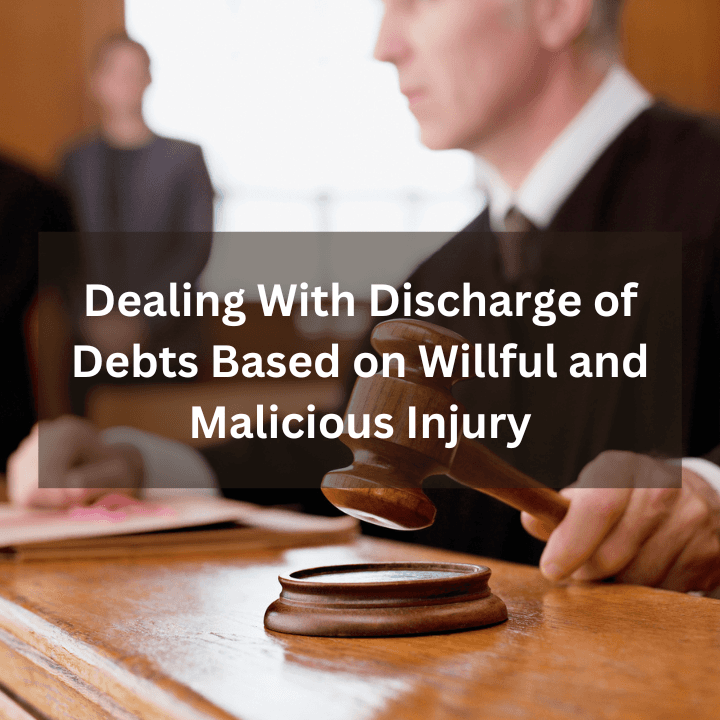
Bankruptcy provides individuals and businesses with a fresh financial start by discharging or eliminating their debts. However, not all debts are eligible for discharge. One category of non-dischargeable debts are those stemming from willful and malicious injury. Creditors can challenge the discharge of such debts through an adversary proceeding, at which debtors can raise defenses to the challenge.
Under the U.S. Bankruptcy Code, a debt can be excluded from discharge if it arises from “any injury to an entity or to the property of an entity caused by willful and malicious conduct of the debtor.” This means conduct that was meant to cause harm (willful) and that was done without just cause or excuse (malicious). The debtor must have intended the consequences of the act, not simply the act itself. Examples are theft, fraud and other wrongful diversions of money or property from its owners.
Typically, a creditor seeking to prevent the discharge of a debt based on such conduct has obtained a judgment in a civil lawsuit and is trying to collect. However, the judgment itself is proof only of the debt, not of the nature of the underlying conduct. The creditor must initiate what is called an adversary proceeding, which is akin to a lawsuit within the bankruptcy case. The creditor has the burden of proving by a preponderance of evidence that the conduct was both willful and malicious. The court hears the evidence and make its own findings of fact.
When a creditor brings an adversary proceeding to challenge the discharge of a debt on this basis, the debtor has the opportunity to raise defenses, such as the following:
- Lack of intent — The debtor might be able to demonstrate that although the conduct itself was intentional, there was no intent to cause harm.
- Justification — The debtor may have had a just cause or excuse, such as self-defense, defense of another person or extenuating circumstances that render the conduct non-malicious.
- Vicarious liability — This means the debtor did not commit a wrongful act but is being held liable due to association with a wrongdoer, such as in a partnership or corporate relationship.
- Lack of causation of harm — If other factors contributed significantly to the creditor’s damages, the debtor can argue that the harm was not solely a result of their actions.
Overcoming a creditor’s challenge to discharge of a debt on this basis is akin to retrying the underlying case that established the debt. A bankruptcy attorney with litigation skills can be of invaluable assistance.
Jeff Field & Associates in Newnan provides reliable advice and effective representation in bankruptcy matters for debtors throughout the Atlanta metropolitan area. To schedule free initial consultation, call 404-381-1278 or contact us online.
Please fill out the form below and one of our attorneys will contact you.





